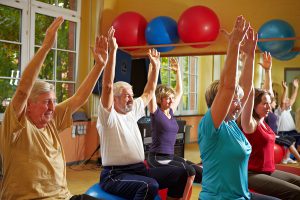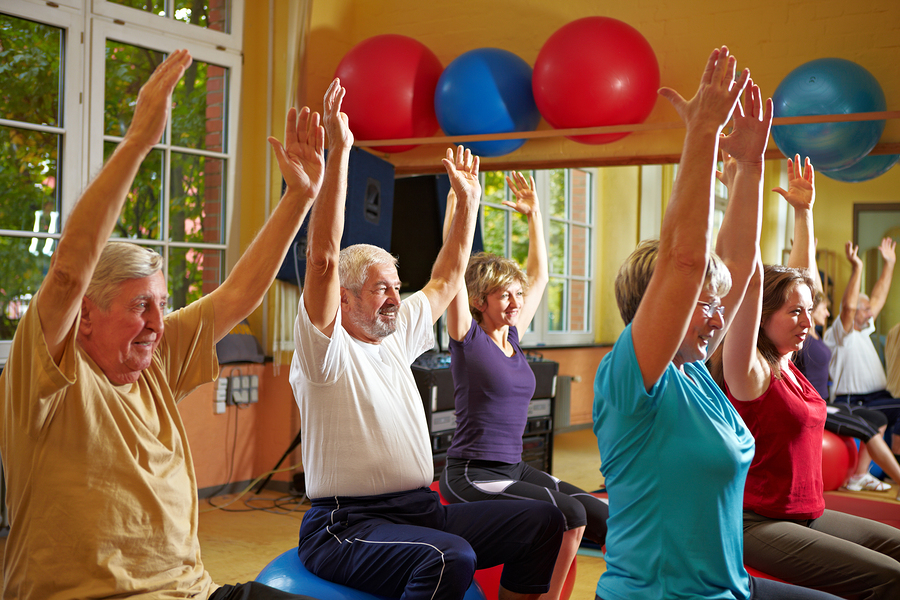February is American Heart Month—a great time to consider whether we’re doing all we can to support cardiovascular wellness.
Most people today are aware of the heart health benefits of physical activity. Walk by a gym window or any urban trail, and you’ll note that young people today are likely to make regular exercise part of their daily routine. But what about their parents and grandparents? If you’ve pretty much been a couch potato for most of your life, and you’ve just celebrated your 65th birthday … or 75th, or 85th, or beyond … is it too late for exercise to benefit your heart?
 Here’s some good news! A study headed by Dr. Chiadi Ndumele, a cardiologist and assistant professor of medicine at Johns Hopkins University School of Medicine, revealed that it’s never too late to reap the heart health benefits of exercise.
Here’s some good news! A study headed by Dr. Chiadi Ndumele, a cardiologist and assistant professor of medicine at Johns Hopkins University School of Medicine, revealed that it’s never too late to reap the heart health benefits of exercise.
Said Dr. Ndumele, “Our findings suggest that when it comes to exercise and heart failure, the better-late-than-never axiom rings particularly true.”
Dr. Ndumele and his team studied the heart health and exercise routines of thousands of people. They found that those who followed a lifelong fitness program were the best off—33 percent less likely to develop heart failure than people who never exercised. But the team also found that people who took up the exercise habit later in life could also lower their risk. Said another Johns Hopkins cardiologist, Dr. Roberta Florido, “Our findings demonstrate that every little bit of movement matters, and that picking up exercise later in life is decidedly better than not moving at all.”
So, where should you begin in turning over this new leaf? Especially if you are an older adult, and if you are a person of any age who is living with a heart condition or other serious illness, it’s very important to talk to your doctor before beginning an exercise program. The doctor will provide an exercise “prescription,” which will most likely include:
Aerobic activity: which increases heart rate and breathing, bringing more oxygen to the body (for example: walking, dancing).
Muscle strengthening and flexibility exercises: that keeps muscles and ligaments strong (for example: stretching, lifting weights).
Balance training: to prevent falls and enhance confidence in exercising (for example: balance classes, tai chi).
Protecting your heart is only one way exercise will benefit you. Exercise helps reduce the risk and manage a wide range of health conditions—a short list includes diabetes, arthritis, osteoporosis, lung disease and depression, and certain cancers.
And perhaps of greatest interest to those of us who are growing older, exercise has been found to slow the progression of Alzheimer’s disease and related memory loss, even among people who have been diagnosed with dementia or are at higher genetic risk.

